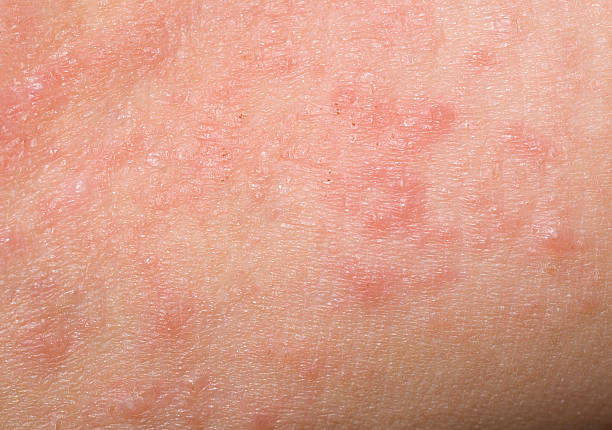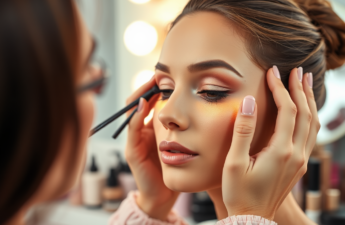Allergy season can be a nightmare for many, with symptoms like sneezing, itchy eyes, and a runny nose being an inevitable part of life. However, it’s possible to lessen the impact of these symptoms on your daily life. By implementing a few clever hacks, you can hide your allergy symptoms and enjoy your days with minimal discomfort. Whether you’re heading to work, attending an event, or simply trying to enjoy a day out, these strategies can help you manage your allergies discreetly and effectively.
1. Stay Hydrated and Maintain a Balanced Diet
One of the most effective ways to combat allergy symptoms is to keep your body healthy from the inside. A well-hydrated body can thin out mucus, making it easier to manage congestion. Additionally, incorporating anti-inflammatory foods into your meals can reduce the severity of your reactions. Here are some dietary suggestions to help minimize allergy symptoms:
- Drink plenty of water throughout the day, aiming for at least 8 glasses.
- Include foods rich in omega-3 fatty acids like salmon, flaxseed, and walnuts to combat inflammation.
- Include a good variety of fruits and vegetables that are high in antioxidants.
- Limited intake of dairy products, as they can exacerbate mucus production.
- Consider adding a spoonful of local honey to your diet, as it may help build immunity to local allergens.
2. Opt for Over-the-Counter Antihistamines
Antihistamines are a go-to solution for allergy sufferers. These medications help reduce symptoms like itching, sneezing, and a runny nose by blocking histamine, a compound released by your immune system during an allergic reaction. It’s essential to choose the right one for your needs:
- Non-drowsy formulas are available for daytime use.
- Long-acting antihistamines can provide relief for 24 hours with a single dose.
- Consult with a healthcare professional if you’re uncertain about which antihistamine to choose.
3. Practice Good Nasal Hygiene
Keeping your nasal passages clean is crucial for reducing allergy symptoms, such as congestion and a runny nose. Nasal irrigation, such as using a saline spray or a neti pot, can help flush out allergens and mucus. Follow these steps for the most effective results:
- Pick a saline nasal spray or prepare a saltwater solution for a neti pot.
- Use the solution to gently flush each nostril, clearing out irritants and excess mucus.
- Regularly clean your nasal irrigation device to prevent bacterial growth.

4. Make Use of Concealers and Eye Drops
Allergy symptoms often lead to red, watery eyes, which can be a telltale sign that you’re suffering. Camouflaging these symptoms can help you look refreshed and more alert. Here’s how:
- Incorporate a quality concealer to cover dark circles and redness around the eyes.
- Use eye drops designed for allergy relief to reduce redness and moisturize your eyes.
- Choose hypoallergenic makeup to avoid further irritation.
- Consider wearing sunglasses outdoors to protect your eyes from allergens.
5. Adjust Your Environment to Reduce Allergen Exposure
Mitigating your exposure to allergens is key to controlling symptoms. Here are some environmental adjustments you can make:
- Keep windows closed during high pollen counts to prevent allergens from entering your home or car.
- Use an air purifier with a HEPA filter to remove particles from the air.
- Regularly wash bedding in hot water to kill dust mites and remove allergens.
- Replace carpeting with hardwood or tile flooring to reduce the accumulation of allergens.
- Vacuum and dust your space frequently with a vacuum cleaner equipped with a HEPA filter.
Conclusion
Although allergies can disrupt your daily routine, these hacks offer practical solutions to reduce and conceal your symptoms. From staying hydrated to tweaking your diet and keeping your environment clean, each strategy contributes to a more comfortable allergy season. Remember to stay prepared with antihistamines, nasal products, and skin concealers, and make environmental adjustments to keep those allergens at bay. With these tips, you can mask allergy symptoms effectively, making it possible to go through your day with confidence and ease.
FAQs
1. Can drinking more water really help with allergy symptoms?
Yes, staying hydrated can help thin the mucus in your nasal passages, making it easier to expel and reducing symptoms like congestion.
2. Are over-the-counter antihistamines safe for everyone?
Most over-the-counter antihistamines are safe for the general population, but it’s always best to consult with a healthcare professional, especially if you have other health conditions or are taking other medications.
3. How often should I use a saline spray or neti pot?
Using a saline spray several times a day is typically safe, but for neti pots, once or twice a day during heavy allergy periods should suffice. Always follow the instructions on the packaging or your doctor’s advice.
4. Can makeup exacerbate allergy symptoms?
It can if you’re using products that you’re allergic to. Opt for hypoallergenic makeup to avoid irritating sensitive skin and eyes.
5. Will keeping windows closed at all times help with allergies?
Keeping windows closed during peak pollen times can significantly reduce indoor allergens. However, it’s also important to ventilate your home to prevent mold and other indoor allergens.



